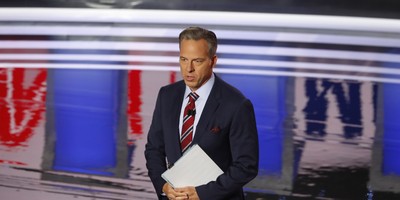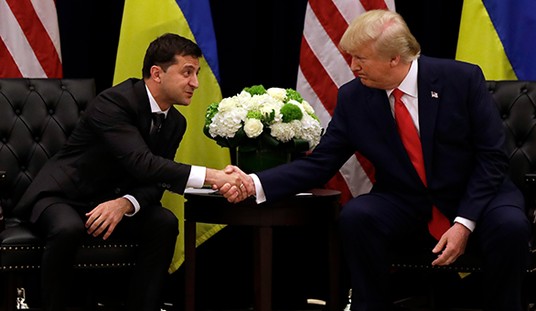Five years ago, during the hopefully named Arab Spring, Syrians staged peaceful protests against the ruling dynasty that had long oppressed them. President Bashar al Assad responded brutally: In May 2011, he sent tanks into the suburbs of Damascus, Deraa, Homs and other cities to crush his critics. Civil war followed.
Experts, not least those in the US government, convinced themselves that the rebels would prevail. There were simply too many angry Syrian Sunnis and President Assad, a member of the Alawite minority, had too few loyal troops. Before long, Sunni jihadis from abroad began streaming into Syria to support the rebels. Among them were branches of al Qaeda, one of which splintered into the Islamic State.
Events then took an unexpected turn. Iran’s rulers, self-proclaimed Shia jihadis, regarded Mr. Assad as their most important ally in the Arab world – or, perhaps more precisely, a regent of their expanding empire. So they instructed Hezbollah, their loyal Lebanese Shia militia, to deploy fighters to Syria to defend him.
Last week, Hezbollah suffered a serious setback: Mustafa Badreddine, the 55-year-old commander of its military operations in Syria, was killed in an explosion near the Damascus airport. This might have been an Israeli operation. On the other hand, a long list of Syrian Sunnis would have been more than eager to send Mr. Badreddine home in a body bag.
At the funeral in Beirut on Friday, large posters showed Mr. Badreddine wearing glasses, a camouflage cap and a broad smile -- a happy holy warrior.
And why shouldn’t he have been? When not waging jihad, he led the life of a Lebanese playboy. In a vivid profile written last year, Beirut-based reporter Alex Rowell noted that Mr. Badreddine had “multiple mistresses” and frequently “entertained at his seaside home north of Beirut” in the Christian town of Jounieh.
Recommended
Those women and guests probably knew him only as the yacht-owning, “Mercedes-driving Christian jeweler, Sami Issa” – just one of the aliases he utilized. (Under his real name, he never had a passport, a driver’s license or a bank account.) He also was a regular at the Casino du Liban, which Mr. Rowell recalls was once the “hangout of Sinatra and Brigitte Bardot—just a stone’s throw from the red light district.”
His alter ego, however, was “explosives virtuoso.” In 2005, former Lebanese Prime Minister Rafik Hariri, a vocal opponent of Mr. Assad’s attempts to dominate Lebanon, was assassinated – 2,200 tons of TNT detonated as Mr. Hariri’s motorcade was driving past Beirut’s landmark St. George Hotel. In 2011, the UN-established Special Tribunal for Lebanon indicted Mr. Badreddine, calling him “the overall controller of the operation.”
Mr. Badreddine launched his career in terrorism while still in his teens. Family connections may have helped: His cousin and brother-in-law was Imad Mughniyeh, for years Hezbollah’s top military commander.
The two worked together to plan the 1983 bombing of the U.S. Marine Barracks in Beirut that killed 241servicemen. Additional attacks followed including at the US and French embassies in Kuwait. Those landed Mr. Badreddine in a Kuwaiti jail.
In an effort to free him, Mr. Mughniyeh staged a series of kidnappings of Westerners in Beirut as well as at least three airline hijackings, including that of TWA Flight 847 during which US Navy Seabee diver Robert Stethem was beaten, tortured and shot in the head – his body then dumped on the tarmac at Beirut’s airport.
In 1990, Saddam Hussein invaded Kuwait. Its prisons were emptied. Iranian diplomats reportedly helped Mr. Badreddine make his way back to Lebanon where he rejoined Mr. Mugniyeh. Over the next few years, the duo turned the militia of Hezbollah (the name translates as Party of God) into one of the region’s most powerful fighting machines – far more powerful than, for example, Lebanon’s official armed forces.
Then, in 2008, Mr. Mughniyeh was assassinated in Damascus – according to some reports in a joint Mossad-CIA operation. Hezbollah’s leaders appointed Mr. Badreddine his successor.
Two years ago, Iranian Foreign Minister Javad Zarif, regarded by President Obama as a leading Iranian “moderate,” laid a wreath on Mr. Mugniyeh’s grave in Beirut. And on Friday, in a message to Hezbollah Secretary General Hassan Nasrallah, Mr. Zarif expressed his government’s condolences on the death of Mr. Badreddine, saying he had died “defending the ideals of Islam.”
“We do not share the comments attributed to Foreign Minister Zarif, and we continue to hold Hezbollah as a foreign terrorist organization,” John Kirby, the State Department spokesman, said Friday. Note the restraint: The US government doesn’t condemn Iran’s praise for a terrorist responsible for the deaths of hundreds of Americans; it merely does not “share” that particular appraisal.
Meanwhile, Secretary of State John Kerry last week was working hard to “drum up some business in Europe for Iran” as a Wall Street Journal headline pungently phrased it. Iran’s rulers have been complaining that they have not yet benefited economically as much as they had expected from President Obama’s Iran deal.
Tony Badran, a Levant expert at the Foundation for Defense of Democracies, thinks it likely that a senior member of Hezbollah’s Jihad Council – that’s what they call it -- will soon be named to replace Mr. Badreddine. Among the candidates: Ibrahim Aqil and Fouad Shukr, both designated as terrorists by the U.S. Treasury Department. Neither is as colorful as was Mr. Badreddine. But they can expect to be well funded – thanks to the Islamic Republic of Iran, assisted by the Obama administration.

























Join the conversation as a VIP Member